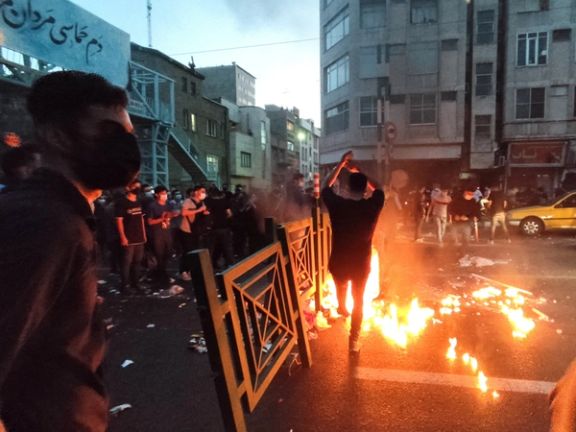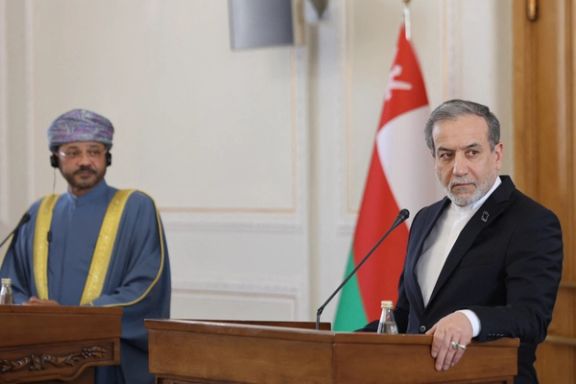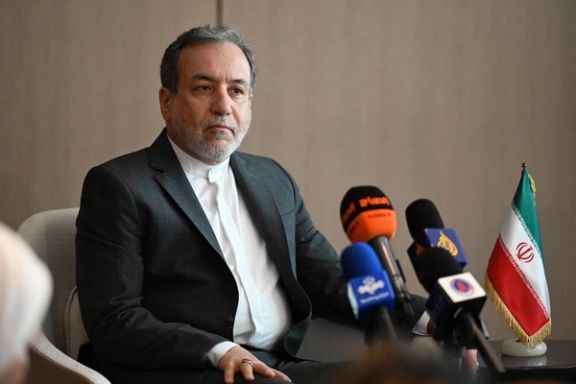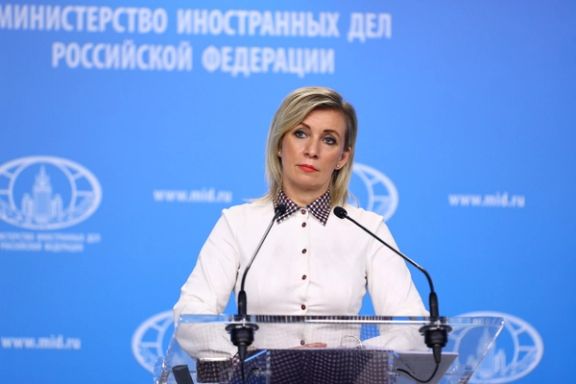Iran, European powers to resume nuclear talks

Britain, France, and Germany will begin a new round of talks with Iran over its nuclear program in Geneva on January 13, Iranian foreign ministry announced on Tuesday.

Britain, France, and Germany will begin a new round of talks with Iran over its nuclear program in Geneva on January 13, Iranian foreign ministry announced on Tuesday.
Iran and the three European powers, commonly referred to as the E3, agreed in November to continue negotiations in an effort to resolve the deadlock over Tehran’s nuclear program.
The announced date is a week before Donald Trump's inauguration and may be viewed by both sides as the final opportunity for a breakthrough before US policy hardens.
Trump is expected to resume his first term strategy of Maximum Pressure upon returning to the White House on January 20.
Meanwhile, Iran has agreed to stricter monitoring by the UN nuclear agency at its Fordow site after significantly accelerating uranium enrichment to near weapons-grade levels, the watchdog stated in a report seen by Reuters.
UN nuclear watchdog chief Rafael Grossi said in December that Iran is dramatically accelerating its enrichment of uranium to up to 60% purity, closer to the roughly 90% level needed for building a bomb. Tehran denies pursuing nuclear weapons and says its program is peaceful.
In 2018, the then administration of Donald Trump withdrew from Iran's 2015 nuclear pact with six major powers and reimposed harsh sanctions on Iran. In response, Tehran violated the pact's nuclear limits, with moves such as rebuilding stockpiles of enriched uranium, refining it to higher fissile purity and installing advanced centrifuges to speed up output.
Indirect talks between US President Joe Biden's administration and Tehran aimed at reviving the pact have failed.
Trump said during his election campaign in September, "We have to make a deal, because the consequences are impossible. We have to make a deal".

A day after protests erupted at two of Tehran's traditional bazaars over the worsening economic crisis and soaring inflation, the goldsmiths bazaar joined the strike on Monday, December 30.
The unrest in Tehran's largest traditional market comes amid growing warnings from politicians and economists about Iran's dire economic state. Reformist politician Ali Mohammad Namazi told conservative outlet Nameh News, "The situation of the Iranian economy is alarming."
Namazi criticized President Masoud Pezeshkian for failing to deliver on campaign promises to "lift sanctions, facilitate international trade, and expand relations with other countries." He added, "The public is now demanding accountability for these unfulfilled promises."
"Iranians are uncertain about their future," Namazi said, warning that unresolved problems could escalate into crises. He also noted that the current instability benefits those with access to insider information while making long-term planning impossible for ordinary citizens.
Namazi further highlighted the structural challenges facing Iran, even if sanctions were lifted. "Even in the best-case scenario, restoring oil production to normal levels would require at least four months of intensive work due to neglected maintenance of oil wells," he explained.
Economic strains and potential unrest
Nameh News emphasized the falling value of the rial and persistent high inflation as key issues plaguing Iran's economy. In response, IRGC commanders and Iran's judiciary chief have stated they are prepared to handle potential unrest. Namazi warned that if the economic freefall, particularly the decline of the rial, is not controlled, widespread protests could ensue.
Geopolitical complications
Iranian foreign policy analyst Ghasem Mohebali told Nameh News that hardliners within Iran oppose lifting sanctions because a normalized economy could weaken their influence. "Hardliners in Iran, like their counterparts in the region and beyond, benefit from ongoing tensions," Mohebali said. He pointed out that global players, including Iran, Russia, the United States, and even China, have vested interests in maintaining instability in the Middle East to advance their own agendas.
"China, for instance, prefers regional tensions to keep the US and Europe distracted from focusing on the war in Ukraine and applying pressure over East Asia," Mohebali added.
Political pressures on the Pezeshkian administration
Amid the crisis, President Pezeshkian faces pressure from reformists and hardliners alike. The IRGC-linked Javan newspaper reported that reformist figures, including former President Mohammad Khatami and former Majles Speaker Ali Akbar Nateq Nouri, are urging Pezeshkian to tell Supreme Leader Ali Khamenei that the government cannot resolve the crisis without negotiating with the West.
Former Vice President Es'haq Jahangiri echoed this sentiment, stating, "Iran is in a difficult situation, and Tehran needs to negotiate with Trump and accept his conditions."
Meanwhile, the hardliner Kayhan newspaper, linked to Khamenei’s office, criticized Pezeshkian’s advisers and called for a government reshuffle. "The current deadlocks are the result of poor advice given to the President," Kayhan warned, adding that advisers suggesting the government is incapable of solving the crisis "are not well-wishers."
Unlike reformists advocating negotiations with the Trump administration, hardliners like Kayhan cautioned against trusting the US and its allies. "How many more times must we try to deal with the 'Great Satan' and its followers?" the publication asked.
A nation at a crossroads
As economic pressures mount and political divisions deepen, Iran's government faces an uncertain path forward. With internal protests and geopolitical complexities converging, Pezeshkian’s administration must navigate mounting challenges while addressing growing calls for accountability and decisive action.

A prominent centrist political analyst in Tehran has warned that the benefits Iran once expected from the 2015 nuclear deal are rapidly fading as the country’s economy continues its downward spiral since last summer.
In an interview with Khabar Online, Mohammad Atrianfar cautioned, "If Iran cannot overcome sanctions, Tehran should prepare for major domestic political challenges." He attributed the current economic decline to the suspension of negotiations with the West since 2021, stating, "The damage to Iran's economy stems from the stalemate in talks."
Khabar Online also noted that lifting sanctions remains a priority for the Pezeshkian administration, as officials recognize that improving Iranians’ living standards hinges on resuming effective negotiations with the West. In her analysis, commentator Fereshteh Saemi observed, "Aware of this reality, the government has shifted its approach since 2021."
This renewed focus on negotiations reflects growing concerns about the economic and political repercussions of prolonged sanctions on Iran, and the coming Trump administration.
This follows comments by Khabar Online columnist Rassoul Salimi, who blamed Iran's hardliners for halting the negotiations led by then-Deputy Foreign Minister Abbas Araqchi in Vienna in April-June 2021. Salimi argued that talks were stopped at a critical moment when the West was reportedly prepared to offer significant concessions to Iran.
According to Salimi, hardliners believed they could extract even greater concessions, especially with Ebrahim Raisi widely expected to win the June 2021 presidential election. He claimed their objective was to undermine outgoing President Hassan Rouhani’s efforts to secure a deal with the United States and instead position Raisi’s incoming administration for a political victory.
Under the Raisi administration, negotiations were pursued by chief nuclear negotiator Ali Bagheri between November 2021 and March 2022, but came to a halt with Iran's overt support for Russia in the Ukraine war. During this time, Tehran’s hardliners actively worked to derail the talks, according to Rassoul Salimi.
While Iranian officials and media anticipate a potential new round of negotiations after Donald Trump takes office in late January, other officials, including Kamal Kharrazi, secretary of the Strategic Council for Foreign Relations—a body affiliated with Supreme Leader Ali Khamenei’s office—have indicated that Iran will enter talks on its own terms. However, Kharrazi has not specified what those conditions entail.
Speaking to Al-Mayadeen TV in Lebanon, Kharrazi stated that "Iran will decide its next steps based on the new US policy." He added, "Iran is equally prepared for negotiations or for countering Western pressures. Our response will be proportional to the West's behavior."
This has long been Tehran's standard approach, but it might not be effective at this juncture when the government is under heavy economic pressure and has sustained serious setbacks in Syria and Lebanon.
Former Vice President Es'haq Jahangiri warned in a recent statement that "hard days lie ahead for Iran" as the country's economy continues to suffer under crippling US sanctions.
In an interview with Khabar Online, political analyst Mohammad Atrianfar echoed similar concerns, highlighting the resistance within the top leadership to re-engage in negotiations. "There is an undesirable resistance in Iran to any negotiations, with hardliners questioning the ability of Iranian negotiators to protect Tehran’s interests," Atrianfar said. "They argue: 'If we are going to lose in negotiations, why should we participate at all?'"
Atrianfar further explained the challenges posed by such attitudes, stating, "Radical stances restrict the actions of reasonable politicians. However, radicalism is destined to fail if we empower moderates."
Meanwhile, the pro-reform website Fararu recently issued a stark warning, noting that "the trigger mechanism of the 2015 nuclear deal will be activated, and all pre-2015 sanctions on Iran will be reinstated if Tehran fails to reach an agreement with the United States before August 2025."

Iran’s Foreign Minister Abbas Araghchi has denied any message exchange with the United States on nuclear negotiations via Oman, but said messages were being exchanged 'when necessary' through Switzerland.
“Naturally, if there is a need for such efforts, they will certainly be undertaken, but no messages were exchanged during this visit,” Araghchi said during a joint press conference with his Omani counterpart, Badr bin Hamad Al Busaidi, in Tehran on Monday.
“Oman's role in nuclear negotiations is clear, and we have always expressed our gratitude to our Omani friends in this regard, ”he added.
He also reiterated that Tehran continues to exchange necessary messages with Washington through the Swiss Embassy. “At the appropriate time…and if necessary, it will be done through this channel. If needed, our Omani brothers could also assist, but no such actions took place during this trip,” he said.
Al Busaidi, who traveled to Tehran for high-level talks, did not comment on the matter but said that he carries a message from the Sultan of Oman for the Iranian President Masoud Pezeshkian.
Araghchi also addressed regional issues, emphasizing the need for stability in Syria. "We all seek calm in Syria, the formation of an inclusive government, and an end to the occupation by Israel," he said, referring to what is internationally recognized as the Israeli occupied Golan Heights.
The press conference is part of a string of trips, following meetings in the UAE the day before, and china on Saturday. In Beijing, he held talks with Chinese Foreign Minister Wang Yi, where, according to a statement by the ministry, they agreed to advance the implementation of the China-Iran Comprehensive Cooperation Plan.

The coming year is expected to bring significant developments in Iran's nuclear program, necessitating increased consultations, said Iranian Foreign Minister Abbas Araghchi upon arrival in China on Friday.
“Over the past years, we have had close consultations with China on all regional and international issues,” he said.
On December 6, the UN nuclear watchdog reported that Iran had significantly accelerated its production rate of 60% enriched uranium, which is now approximately five times higher than a month ago. Iran is now believed to possess enough 60% enriched uranium to produce four to five atomic bombs, should it choose to pursue nuclear weapons.
The International Atomic Energy Agency (IAEA) Director-General Rafael Grossi's said earlier this month that the 2015 Iran nuclear deal, known as the Joint Comprehensive Plan of Action (JCPOA), is no longer sufficient to curb Tehran’s uranium enrichment which has exceeded international limits.
"Iran is enriching uranium close to military levels and is rapidly moving towards becoming a nuclear state," Grossi said in an interview with Italy's ANSA news agency."The philosophy of the original accord with Iran can be used, but that agreement is no longer useful," he added.

Russia has called on the UN nuclear watchdog to adopt an impartial approach to the monitoring of Tehran's nuclear facilities, after the International Atomic Energy Agency (IAEA) warned Tehran is rapidly nearing the position of a nuclear state.
"We hope that the IAEA will be able to ensure the objectivity and impartially of the monitoring within the framework of its technical mandate, without getting politicized, without succumbing to absolutely perverted tricks by the Western camp," Russian Foreign Ministry spokeswoman Maria Zakharova said Wednesday.
"We see this as a necessary guarantee of constructive cooperation between the agency and Iran the strengthening of which we have invariably supported," she noted during a briefing.
The Russian diplomat made the remarks in reaction to IAEA Director-General Rafael Grossi's warning about the Islamic Republic's march toward a nuclear weapon.
"Iran is enriching uranium close to military levels and is rapidly moving towards becoming a nuclear state," Grossi said in an interview with Italy's ANSA news agency earlier this month.
He said the 2015 Iran nuclear deal, known as the Joint Comprehensive Plan of Action (JCPOA), is no longer sufficient to curb Tehran’s uranium enrichment which has exceeded international limits.
"The philosophy of the original accord with Iran can be used, but that agreement is no longer useful," he added.
On December 6, the IAEA reported that Iran had significantly accelerated its production rate of 60% enriched uranium, which is now approximately five times higher than a month ago. Iran is now believed to possess enough 60% enriched uranium to produce four to five atomic bombs, should it choose to pursue nuclear weapons.